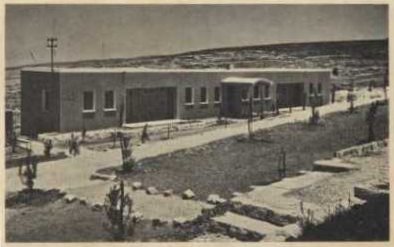This Article: (6 Pages)
- 1. The Evidence to Proof for... faith
- 2. Witness One: Stephen
- 3. Bible Witness Two: Saul
- 4. Witness three: Luke
- 5. Fourth Witness: Archaeology
- 6. Summing up of the reliability of... the evidence
6) Summing up of the reliability of the evidence
At a trial at the end the two parties sum up the evidence. We have to be the judge. How reliable are they?
Luke is agreed by all, even doubters of his message, to be a real person who lived at the time he said he did and was accurate in all historical matters. Therefore it is likely when he speaks of his own personal experience that he is speaking the truth. If someone habitually writes the truth, and is writing a factual history, it is an insult to them not to believe their own personal testimony! We would believe seemingly incredible accounts by decorated and sincere returned soldiers who survived in battle as historical fact. Luke was a proselyte to Judaism and had left his culture and had nothing to gain. We remember that in Luke's adopted culture that they knew their God hated liars.
Luke says he saw a girl (and others) healed by Paul in Jesus' name, There is no doubt in Luke's mind the girl was healed as Paul and Silas are put in prison for it. Luke shows this is evidence that God was with Paul and that Paul was telling the truth when he healed people in Jesus' name. Therefore, in Luke's opinion, there was no doubt that Jesus really had been raised and that he was expected Messiah.
Luke also gives witness that Paul, before he believed Jesus was the Messiah, did not believe the apostles who said they had seen Jesus alive, and was involved in stoning Stephen. Luke knew Paul and Paul witnessed that Luke's record of Stephen's testimony was accurate. In fact Paul, also a zealous person, becomes like Stephen, arguing publicly and speaking the same things as Stephen did and ending up in prison for it. There is no doubt Paul is a real historical person, and that he really wrote the letters that have his name on them.
Stephen, a Greek proselyte to Judaism, gave witness that Jesus was the Messiah based on the witness of those he knew personally, who had seen Jesus alive after his crucifixion, and the evidence in scriptures which said Messiah was to die.
We have two witnesses, Luke and Paul, who confirm what Stephen said and believed. There is no doubt Stephen was zealous and died for his beliefs. Guilt regarding Stephen was also possibly the reason Paul worked so hard to convert the world to believe what Stephen had preached, that Jesus had risen from the dead and was the Messiah who would save people from their sins.
Where we stand
We have the witnesses testimony. Based on the evidence given, we can prove whether the case for Jesus being raised is true or not. There is no half measure as a half lie is a whole lie. We remember they believed a witness who lies is an abomination to God. We don't trust people who lie to us even in things that don't matter. It is the whole truth and nothing but the truth, or it is all a lie.
Is it likely Luke's testimony is true or false?
Is it likely Paul's testimony is true or false?
Is it likely Stephen's testimony is true or false?
If true to all, as they sound like they would not lie: then
We have a proof. We would not convict them. We would set them free as truthful people who did not do wrong.
If we set them free, we must accept that Jesus did indeed rise from the dead. We accept that he is the Messiah predicted of in the Old Testament. We then can know for sure that by associating with his name we can be saved from eternal death.
If we can believe the witnesses, we can believe in Jesus and have faith. Faith is conviction. We have made a conviction based on evidence. If we cannot make up our minds on this evidence, how can we decide on, or know, anything.
The Bible uses powerful word pictures, and the one of the prisoner waiting for release is of great importance for our lives. At the time of Passover it is worthwhile considering the prisoner with the idea of the joy of freedom.

The following is utterly speculative, and investigates based on known facts how and why God might have brought about the removal of JFK in the light of what has been said in the Bible about who rules in the nations.

It was written that,

For I will lay the land most desolate.. and the mountains of Israel shall be desolate, that none shall pass through. (Ezekiel 33:28)

How do true Christians relate to the state? We follow the scriptures and see where our place might be.

 Show All
Show All


